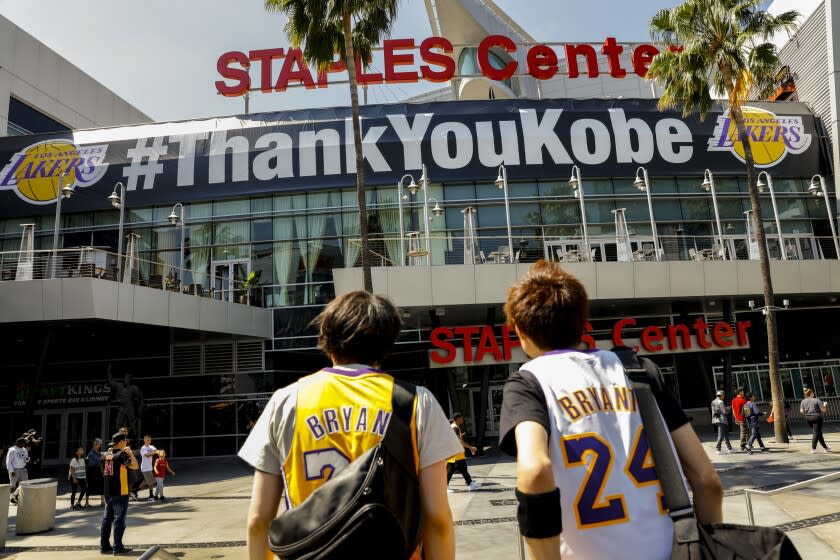Editorial: Staples Center's new name is perfect for our crypto era

So let’s get this straight. The new name of Staples Center is going to be Crypto.com Arena? Well, that’s just perfect. The word “crypto” means hidden or secret, but it also has overtones of “fake” or at least “questionable.” This is a crypto world, and an era of crypto-pretty-much-everything, so why not just throw in the towel and acknowledge it?
In case you’re just catching up, the Singapore-based currency exchange recently bought the naming rights to the downtown Los Angeles arena known for a few more weeks as Staples Center, after the office supply company that owned the previous naming rights. Crypto.com reportedly paid $700 million in very real, old-school money to rename the arena after itself in order to promote its services for buying and exchanging cryptocurrencies like Bitcoin, Ethereum, Dogecoin and the like.
So is cryptocurrency actual money? Sure, if you and enough other people believe it is. No need for stodgy institutions like banks or mints or treasury departments. A willing buyer and willing seller agree on a crypto unit price of some good or service — or video game prize, or crypto-something — and you find an online crypto arena to make your trade. It’s not fake, it’s just hidden — from anyone other than the parties to the transaction.
Stodgy institutions are not doing well these days. Take democracy, for example. Many Americans believe there is a crypto government — a “deep state”— that actually pulls the strings that operate an illusory republic.
But crypto doesn’t just mean “hidden.” Consider for example “cryptozoology,” which to actual, institutionally trained scientists means pseudo-scientific pseudo-study of pseudo creatures like the Lock Ness monster and Bigfoot. But there are cryptozoologists who believe with a passion that they are pursuing a truth that all those stuffy folks in their white lab coats are covering up for their own purposes. Do these creatures really exist? If enough people believe they do, who’s to say they don’t?
Did Joe Biden win the 2020 presidential election? Sure, if you say so. But if you say he didn’t, facts be damned (what are “facts”?), then maybe he didn’t. For you. In this crypto era, you followed the crypto-election — the one in which Donald Trump won a second term.
It’s perhaps not so big a leap from that belief to the conviction that Democrats and Hollywood elites kidnap and frighten children in order to harvest and ingest their blood. It’s a crypto truth — crypto in the sense that it is hidden from most of us — and also in the sense that it is utter nonsense.
So why not crypto arenas? A virtual one in which people trade their cryptocurrency, and another one, made of concrete and steel, in which real flesh-and-blood Lakers, Clippers, Sparks and Kings play games on which real fans bet real currency and cryptocurrency? “Crypto.com Arena” doesn’t exactly roll off the tongue, though. So, Los Angeles, prepare to spend real money on tickets to games at what will surely become known as “The Crypt.” Forevermore. Or at least until the next company forks over big money for renaming rights.
This story originally appeared in Los Angeles Times.

